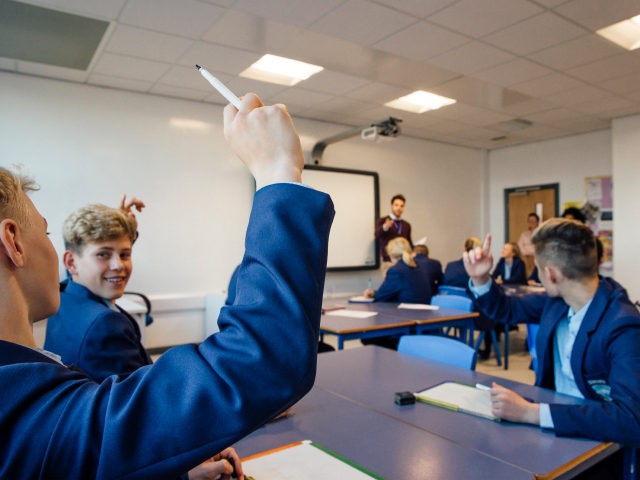A school in Leicestershire, England, has banned the terms “good” and “bad” to describe pupil behaviour because the headteacher wanted to remove “emotional words” from classroom management.
Teachers at Loughborough Amherst School will instead describe good and bad behaviour as either “skilful or unskilful”, with headmaster Dr Julian Murphy saying the policy, loaned from Buddhism, was “designed to take the emotional heat out of language”.
Speaking to the i newspaper, Dr Murphy said that while he did not want teachers to be “soft”, he didn’t want them to be “shouty”, either, or to “make pupils feel guilty”.
“I think it’s human psychology, even when you’re an adult – if people make you feel guilty, then you get angry and then actually that’s when you’re likely to play the blame game and not to work that well. That’s when things get into a bit of a vicious circle,” he continued.
“You’re not really angry with them, your action is actually much more one of concern because they’re behaving in an extremely unskillful way which is going to negatively affect their live [sic] chances and possibly those of people around them,” he rationalised.
The headteacher maintained, however, that he still ran “quite a strict school”, claiming that there was a “cumulative behaviour policy” that could result in expulsion for handing in homework late too many times or frequent littering.
Mr Murphy’s methods made headlines in 2018 when he banned traditional school reports, instead replacing them with a biannual report modelled on employee reviews in the workplace.
Murphy, who runs the £12,000-a-year private school, had told The Telegraph at the time that the decision was prompted by pushy parents who would complain that teachers’ remarks criticising their children’s efforts or behaviour were upsetting. As a result, most teachers self-censored in reports, instead filling them with “waffle” and other euphemisms to describe a child — such as “chatty” or “high-spirited”, when they mean disruptive — in order to avoid the wrath of parents.
“It is a cultural change – now parents are more likely to say to teachers: ‘You have upset my child, you have damaged their confidence, the problem isn’t my child, it’s you’,” Mr Murphy had said.
Parents had recently lashed out over claims that a new teacher dubbed the “UK’s strictest teacher” had allegedly scolded children for not speaking loudly and clearly and for demanding they pay attention to him when he leads a class.
In September, Mr Barry Smith had been brought in as a consultant on improving The Abbey School in Faversham, Kent, and had been “previously praised by Government ministers for his impact on school improvement”, said headteacher Dr Rowland Speller.
While working in other schools, Smith had introduced strict uniform policies, including banning certain haircuts, and rules on the lengths of girls’ skirts as well as confiscating mobile phones.
Mr Smith had made a similar appearance at the De Lisle College in Leicestershire earlier this month, with parents complaining about the “new discipline regime”, including claims children were being “forced to smile constantly” at teachers and staff.
Well known in educational circles for his behaviour policies, Smith is recommended by Britain’s perhaps most famous headteacher, Katharine Birbalsingh CBE, who heads the Michaela School in London, which for a non-selective state school has results ranking amongst the highest in the country, owing to the headteacher’s emphasis on discipline and high expectations.
This week, the Conservative government appointed Ms Birbalsingh as head of the social mobility commission, which helps the advancement of disadvantaged children. The headteacher has criticised progressive educational endeavours such as attempts to “decolonise the curriculum” and said that the Black Lives Matter movement was divisive and had damaged race relations.
While teachers and parents have been in conflict in certain schools over maintaining order, one principal at a London school appeared to lose control entirely to its pupils, who demanded social justice-style action at their school.
Sparked by Black Lives Matter activism, hundreds of pupils at Pimlico Academy in London had protested over what they called “discriminatory” uniform policies, including banning hairstyles that blocked the view of others — such as afros — and colourful Islamic headscarves. They also protested over the flying of the British flag, which in September 2020 pupils had taken down from the pole and burned.
The headteacher eventually capitulated to the young mob, after pressure from fellow teachers sympathetic to the leftist-inspired protests, and later resigned.

COMMENTS
Please let us know if you're having issues with commenting.